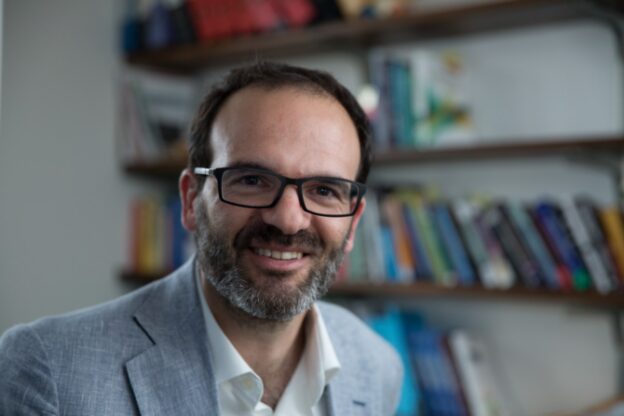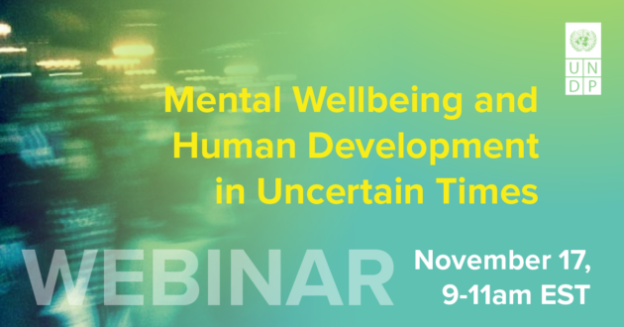October 24th, 11:30 am Santiago / 9:30 am Bogota / 10:30 am Washington DC
Registration: https://www.eventbrite.co.uk/e/lessons-learned-from-covid-19-when-protecting-peoples-capabilities-tickets-441603165957
Agenda:
- 10:30 am. - 10:40 am. Introduction, Carlos Garzón (HDCA General Secretary)
- 10:40 am. - 11:10 am. World Bank presentation "World lessons from Covid-19 relating to social protection" (Ugo Gentilini, Lead for Social Assistance with the Social Protection and Jobs Global Practice)
- 11:10 am. - 11:40 am., CEPAL presentation "Impacts of the COVID-19 pandemic with lessons learned and proposals to strengthen social protection systems in Latin America" (Claudia Robles, Social Affairs Officer of the Social Development Division of the Economic Commission for Latin America, and the Caribbean (ECLAC)).
- 11:40 am - 12:00 m., questions, and comments.
First presentation
Title: Lessons from Covid-19 relating to social protection.
Paper: Cash transfers in pandemic times. Evidence, practices, and implications from the largest scale up in History.
Link: https://documents1.worldbank.org/curated/en/099800007112236655/pdf/P17658505ca3820930a254018e229a30bf8.pdf
Description:
Is Covid-19 a “game changer” for cash transfers? This tantalizing question has animated a large body of recent literature and over 60 virtual panels. This talk offers some clues to address the question by bringing together data, evaluations and practical experiences generated over the course of the pandemic. In particular, the presentation flashes out differences between Covid-19 and other crises; it lays out an anatomy of global responses and offers novel data analysis around stylized international trends; synthesizes fresh empirical evidence on response effectiveness based on over 40 evaluations; discusses country-level operational practices as emerging from an array of high and lower-income contexts; and distills key insights with possible future implications.
Speaker: Ugo Gentilini
Ugo Gentilini is Global Lead for Social Assistance with the Social Protection and Jobs Global Practice at the World Bank. His interests encompass research and practice on social protection from high-income countries to fragile states. With a PhD in Economics, he has published extensively on social assistance in the context of, for example, labor markets, urbanization, food security and nutrition, subsidy reforms, humanitarian assistance, displacement, and mobility. His recent books include Exploring Universal Basic Income (2020), Adaptive Social Protection (2020), and the 1.5 billion People Question (2017); he is leading the global tracker of social protection responses to COVID-19; he has been a team member of the World Development Report 2019; and he is co-founder of the flagship The State of Social Safety Nets in the World Series. Ugo began his career in 2002 with the UN World Food Programme, and since 2016 he has been producing a weekly newsletter on social protection reaching thousands of subscribers
Website: Ugo Gentilini | Global Lead for Social Assistance, World Bank
Second presentation
Title: Impacts of the COVID-19 pandemic with lessons learned and proposals to strengthen social protection systems in Latin America.
Paper: Social protection tools for coping with the impacts of the COVID-19 pandemic: The Latin American experience
Link: https://www.cepal.org/en/publications/47748-social-protection-tools-coping-impacts-covid-19-pandemic-latin-american
Description:
The coronavirus disease (COVID-19) pandemic has triggered an unprecedented worldwide social, economic and health crisis. This emergency has prompted the Latin American and Caribbean countries to deploy a series of social protection measures to mitigate its impacts, especially for the most vulnerable population groups. In view of this situation and given the possibility of other crises in the future, the role of social protection systems has become one of fundamental importance, and strategies must be devised for making those systems universal, comprehensive, and sustainable based on an approach that is sensitive to difference. This study looks at several the social protection measures implemented by the countries of the region in response to the pandemic and explores different social protection tools that could contribute to a recovery with equality and sustainability.
Speaker: Claudia Cristina Robles Farias
Social Affairs Officer of the Social Development Division of the Economic Commission for Latin America and the Caribbean (ECLAC). She has a degree in Sociology from the Pontifical Catholic University of Chile and a Master's in Sociology of Development. She holds a doctorate from the University of Essex. Sociologist specializing in social policies and social protection, development studies, and human rights. She has worked at ECLAC as a Social Affairs Officer and a consultant on social protection policies, policies for social development. She previously worked at UNICEF in the El Salvador office as a Social Policy Specialist.
![]() Monday, January 9, 2023, 15:00 - 16:30 CET
Monday, January 9, 2023, 15:00 - 16:30 CET


